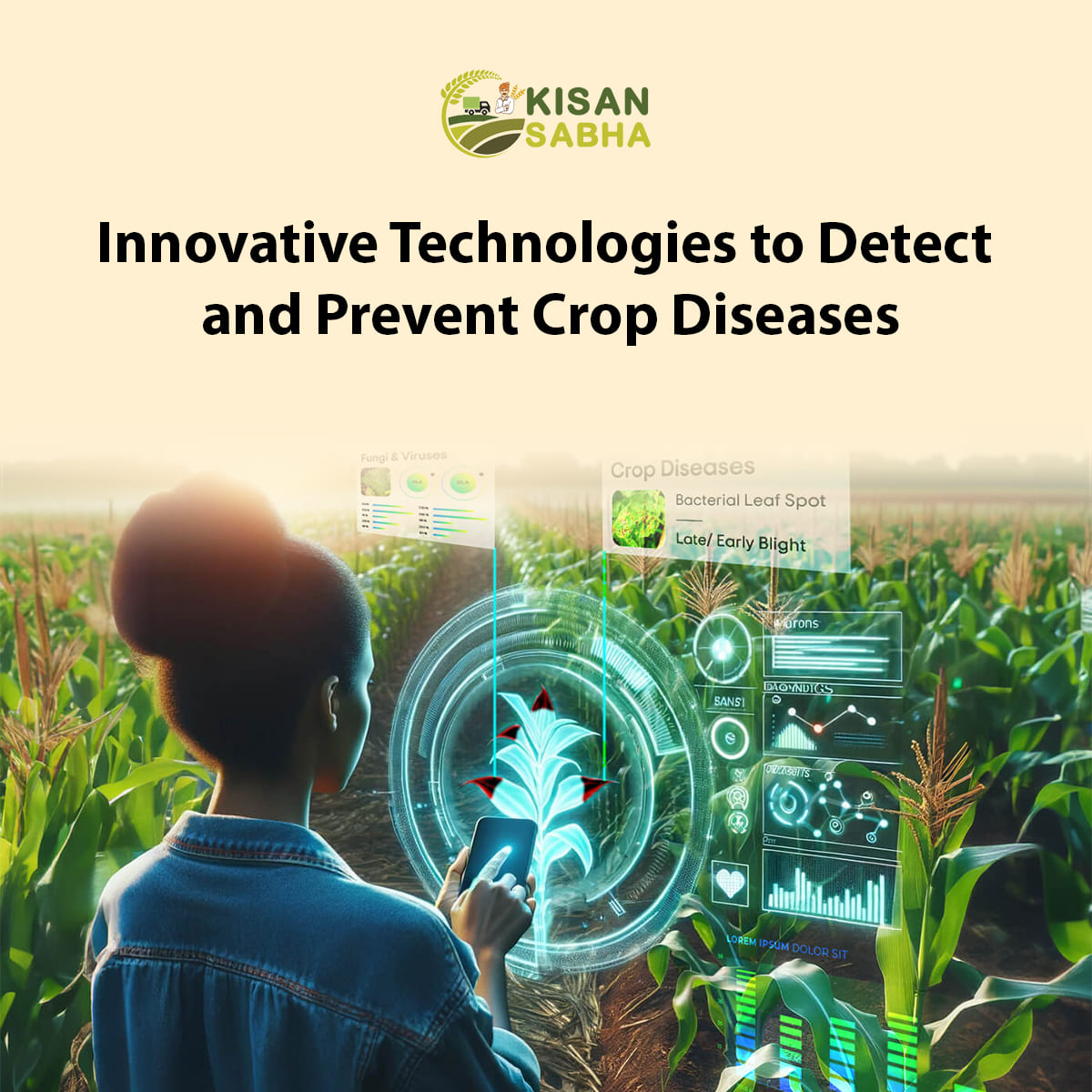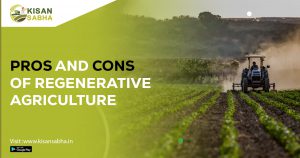In this dynamic sector of agriculture, technology has revolutionized ways of maintaining and sustaining crops. In addition, crop diseases diagnosis and disease control have now emerged as key areas of contention where agritech innovations are proving themselves superb. These technologies are not just incremental improvements but revolutionary approaches that promise to reshape agricultural practices worldwide.
The Big Challenges in Crop Health
Agricultural productivity faces a massive hurdle: crop disease that can destroy entire harvests and threaten global food security. Previously, farmers had to rely on:
- Careful manual inspections
- Years of personal experience
- Guesswork about plant health
However, these traditional methods were:
- Slow and time-consuming
- Prone to human errors
- Inefficient at catching early disease signs
In this dynamic sector of agriculture, technology has revolutionized ways of maintaining and sustaining crops. In addition, crop disease diagnosis and disease control have now emerged as key areas of contention where agritech innovations are proving themselves superb.
Luckily, modern technologies have significantly altered this picture, leaving farmers with effective ways to shield their crops. Further, these tools are enhanced in terms of speed, accuracy, and efficiency than the previous ones to prevent crop disease.

The Economic Impact: A Serious Threat
Crop diseases are more than just a farming problem—they’re an economic disaster. For instance, global agricultural research reveals staggering statistics:
- Crop losses run into billions of dollars annually
- Entire agricultural communities can be financially devastated
- Food supply chains become vulnerable
As a result, early detection and precise intervention have become crucial for sustainable agricultural practices. Additionally, these measures ensure that farmers can maintain stable incomes and protect global food supplies.
Why Do Plant Diseases Matter?
Plant diseases are a huge problem worldwide. Not only can they destroy crops, but they also cost farmers billions of dollars every year. Thus, catching these crop diseases early is crucial for keeping our food supply safe and stable. Early intervention can save entire harvests and prevent long-term losses.
Amazing Technologies Helping Farmers
To tackle these challenges, scientists and innovators have developed amazing technologies to help farmers:
Smart Computers and Plant Checking
Artificial intelligence (AI) is like a super-smart doctor for plants. For example, these computer systems can look at plant pictures and find tiny signs of disease that humans might miss. Therefore, it’s like having a superhero who can see things we can’t! Furthermore, AI systems learn over time, becoming even better at detecting problems.
Special Cameras That See More
Some special cameras can look at plants in ways we can’t. Specifically, they can:
- Spot tiny changes in plant health
- See problems before plants look sick
- Help farmers act quickly
In other words, these cameras give farmers an early warning system for crop diseases.
Flying Helpers: Drones and Satellites
Imagine having a bird’s eye view of your farm all the time. Drones and satellites do exactly that! Moreover, they can:
- Check large farm areas quickly
- Take detailed pictures of crops
- Find disease spots faster than walking through fields
As a result, farmers save time and effort while improving their ability to protect their crops.
Smart Sensors Everywhere
Think of these like tiny plant health detectives. For instance, these small devices:
- Watch soil conditions
- Track weather changes
- Send instant alerts about potential problems
Additionally, they can help farmers make better decisions about when to water, fertilize, or protect their crops.

Understanding Plant Genes
Scientists are now creating plant types that can fight crop diseases better. To explain, it’s like giving plants their special shield against sickness. Moreover, these disease-resistant plants reduce the need for chemical treatments, making farming more sustainable.
Benefits for Farmers and the Planet
These new technologies help farmers in many ways. For instance, they allow farmers to:
- Spend less money on chemicals
- Grow more food
- Protect the environment
- Keep farming sustainable
Additionally, these innovations are good for the planet. By reducing the use of harmful chemicals and improving efficiency, agritech supports healthier ecosystems and reduces pollution. Thus, the benefits extend beyond farms to the broader environment.
Read More:- What is Irrigation? Various Irrigation Methods in India
Challenges and Future Outlook
Despite all these advancements, challenges remain in adopting these technologies:
- High initial implementation costs
- Technical skill requirements
- Infrastructure limitations in developing regions
Nevertheless, these challenges can be addressed with proper planning and collaboration. For example, governments and agricultural organizations can provide subsidies or training programs to make these technologies accessible to more farmers.
Collaborative Ecosystem
To succeed, agritech solutions require collaboration among many stakeholders:
- Agricultural researchers
- Technology developers
- Government agencies
- Farming communities
By working together, these groups can ensure that advanced technologies reach farmers everywhere. Furthermore, partnerships can accelerate innovation and create more affordable solutions.
Looking to the Future
Agritech’s revolution in crop disease detection represents more than just technological advances. Instead, it symbolizes hope for a sustainable farming system. Because these technologies are continuously evolving, they promise to change the way we manage crops. Farmers will rely more on smart, innovative technology solutions to ensure food security.
Ultimately, the future of agriculture isn’t just about growing crops. It’s also about protecting and nurturing those plants through smarter methods. Moreover, as those technologies grow to be extra powerful and bendy, they will play a bigger role in making sure of global meal security and environmental sustainability.
Conclusion
Agritech is revolutionizing the way farmers detect and prevent crop diseases. From smart AI structures to flying drones, these technologies are remodeling agriculture into an extra efficient, sustainable, and resilient industry. Additionally, they provide desire for farmers going through the developing challenges of plant sicknesses and climate trade.
Therefore, collaboration among governments, researchers, and farmers is essential for spreading these innovations in addition. As a result, we can look forward to a future in which farming isn’t always just about developing meals but additionally about defending it in smarter and greater sustainable ways.





